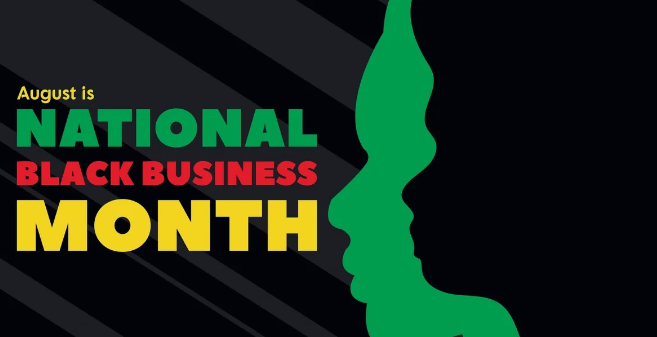By Elle Ryan, Mental Health Clinician
August marks the 19th anniversary of National Black Business Month! This is a time to celebrate and appreciate Black business owners and entrepreneurs and the major contributions they provide to our economy. Black business owners account for nearly 10% of all U.S. businesses, and according to the U.S. Census Bureau, that 10% amounts to approximately two million companies owned by Black persons. Of the Black-owned businesses, about 40% are in health care, social assistance, repair and maintenance and personal laundry services. Others specialize in advertising firms, auto dealerships, consulting services, barbershops and beauty salons.
Despite the recent growth of Black-owned businesses, many Black business owners and entrepreneurs continue to face a disproportionate number of challenges. Many are unable to access capital, which has been exacerbated by the Covid-19 pandemic. 41% of active Black-owned businesses fell between the months of February and April 2020 with the majority of owners describing their businesses as unable to grow and profit.
A practice known as “redlining” has actively contributed to the Racial Wealth Gap in the U.S. The red-lining policy started with the Federal Housing Administration further segregating Black neighborhoods by refusing to provide mortgages and financial loans in and around their communities. The FHA simultaneously subsidized builders who were mass producing subdivisions for Whites, requiring that none of these homes be sold to Black Americans.
For generations, redlining prevented Black people from living in specific residential areas, which kept them from home and business ownership and hindered their access to school funding, public resources and accumulation of generational wealth. Redlining is another example of systemic oppression that results in homelessness and other racial inequities, such as poverty, food insecurity, and incarceration rates.
In light of this history, it’s especially important to support Black business owners and their role in strengthening the Black community. Supporting Black-owned businesses and communities is a way to celebrate diverse cultures, but it’s also helpful for creating a healthy economy for all. We can support Black business through money, time, or advocacy. Our support can help create jobs, strengthen local economies, and even has the potential to close the racial wealth gap.

